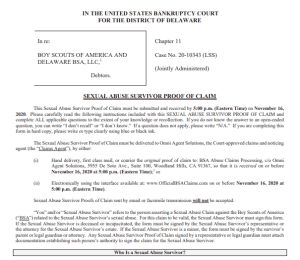Kara Alaimo is a communication professor at Fairleigh Dickinson University, an online reputation expert and author of “Over the Influence: Why Social Media is Toxic for Women and Girls — And How We Can Take it Back” and the ebook “Pitch, Tweet, or Engage on the Street: How to Practice Global Public Relations and Strategic Communication.” Writing on CNN.com, Alaimo reinforces that parents should monitor their children’s social media interactions and the content they share online.
Although this advice may seem obvious, a recent study reveals approximately 7% of children ages 10 through 18 who were treated for sexual assault at a California hospital between 2018 and 2023 said that social media had facilitated their communication with their perpetrator. More alarming, when researchers focused specifically on cases where the perpetrator was not related to the victim, the number rose to 12%, with those children stating that their interactions on social media led to the assault.
The findings were announced at the 2024 American Academy of Pediatrics National Conference and Exhibition in Orlando on Sunday. According to the researchers, the average age of the survivors in the study was 13, and 89% of them were female; approximately 80% of the perpetrators were adult men.
According to Alaimo, forthcoming data by lead study author Dr. Shalon Nienow — division director of Child Abuse Pediatrics at Rady Children’s Hospital-San Diego — will reveal that the percentage of sexual assaults of children by acquaintances tied to social media apps is now significantly greater.
“Social media is a ubiquitous form of communication for children and adolescents that can breed a false sense of security and ‘friendship’ with those that they meet online,” said Nienow, adding, “It is our experience that in cases of acquaintance sexual assault, social media plays a significant role in facilitating communication and connection between victims and their perpetrators.”
Having The Conversation: Talking To Your Kids About Online Content
As Alaimo points out, parents don’t let their underage kids go to bars and nightclubs, lest they be potentially harmed by an adult. Thus, why aren’t many parents protecting their kids when it comes to who they are meeting online?
It may be an uncomfortable conversation, but parents need to explain to their children how sexual predators could make contact with them online and that the predator’s malicious intent would be hidden until after the child meets them in person.
However, how should parents know everyone that their kids are talking to online? Wouldn’t doing so be an invasion of their privacy? Dr. Nienow suggests that having a phone and using social media is a privilege, not a right. And with that privilege, she says, comes responsibility.
Social Media Companies Need To Do More To Protect Kids
Social media platforms have faced increasing pressure to improve user safety, implement stricter content moderation, and protect vulnerable users, especially minors, from harmful interactions. For its part, the federal government recently introduced a bipartisan bill that bans social media for kids 12 and under and blocks platforms from using “addictive algorithms for teens,” according to the U.S. Senate Commerce Committee. The bill, sponsored by ranking members Ted Cruz (R-TX) and Brian Schatz (D-HI), dubbed, “The Kids Off Social Media Act,” also includes Sen. Cruz’s previously introduced Eyes on the Board Act, a bipartisan bill to block social media access at schools.
Last month, Instagram announced that teens using its platform will now have more restrictions on what they can see and who can follow them, the cyber security firm, Rhyno, reported. Teens will now have their accounts automatically be private, meaning only approved followers can view their content. In addition, teen users will have to accept new followers manually. Other measures the platform introduced include muted conversations during the night, and a stricter filter will be applied to the content they can see.
As for how Instagram can be better managed by parents, the platform will better allow for parents who manage their teen’s account to access who they’re messaging and what types of content they’re interacting with, although they won’t see specific details. According to Rhyno, Meta, the company formerly known as Facebook and Instagram owner, acknowledges that many parents don’t fully use the tools provided for them, something Sir Nick Clegg, former UK deputy prime minister and current vice president for global affairs and communications at Facebook, has highlighted as an area that needs improvement.
Despite the enhanced safety features, Alaimo says that 16- to 17-year-olds have the option to change their settings, “so it’s important for parents to ensure that they don’t do so and that children have accurately reported their ages so that their accounts are marked as teen accounts.”
In her research, Alaimo found that girls often try to make themselves look “hot” for pictures because they find it’s one of the easiest ways to rack up likes on social platforms. “It’s therefore important to talk to children about how posting such images could make them targeted by predators. Parents should also follow what their kids post,” Alaimo writes on CNN.
At the end of the day, both literally and metaphorically-speaking, parents need to actively monitoring their kids’ activities on social media platforms and have open, healthy conversations about the associated risks.




